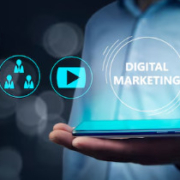Discover How Storytelling Transforms Digital Brand Campaigns
In today’s highly saturated digital marketplace, brands are no longer competing solely on product quality or pricing — they’re competing for attention, emotion, and connection. One of the most powerful tools modern marketers use to break through the noise is storytelling. It’s not just a creative strategy; it’s a transformative approach that turns digital brand campaigns into compelling experiences that resonate deeply with audiences.
So, how exactly does storytelling influence digital campaigns, and why should every brand integrate it into their strategy?
Why Storytelling Matters in the Digital Age
Digital platforms have redefined how consumers interact with brands. People scroll, skim, and swipe — often ignoring traditional ads. But a well-told story grabs attention, fosters emotional bonds, and inspires action. Unlike product-focused promotions, storytelling focuses on the human side of the brand, making it more relatable, memorable, and trustworthy.
Think about global campaigns like Dove’s “Real Beauty” or Nike’s “Just Do It” narratives. These campaigns didn’t just push products; they told stories about empowerment, personal growth, and authenticity. The result? Strong emotional engagement and loyal brand communities.
Elements of a Powerful Brand Story
To truly transform a digital brand campaign, storytelling must go beyond catchy taglines. It needs structure and authenticity. Here are the essential elements of a compelling brand story:
- Character – Usually, this is the customer. A good story centers on someone the audience can identify with.
- Conflict – The challenge or problem that needs solving. This introduces tension and stakes.
- Resolution – How the product or brand helps resolve the issue.
- Emotion – The glue that holds the story together. It’s what makes a story relatable and memorable.
These elements, when used well, shift a brand’s message from “what we sell” to “how we help you overcome your challenges.”
How Storytelling Enhances Campaign Effectiveness
Boosts Emotional Connection
Research shows that emotional campaigns are twice as effective as rational ones. Storytelling taps into core emotions — joy, fear, nostalgia, ambition — making your campaign more impactful. Consumers may forget stats, but they’ll remember how your brand made them feel.
Increases Engagement and Shares
In the age of social media, users crave meaningful content. Stories are inherently shareable, especially when they evoke strong feelings or inspire action. A powerful story can travel far beyond its initial platform, extending the reach of your digital campaign organically.
Builds Trust and Credibility
People trust people, not faceless corporations. When your brand shares authentic stories — from real customers, behind-the-scenes narratives, or founder journeys — it humanizes your message. This transparency builds trust, which is a key driver of conversion.
Improves Message Retention
The human brain is wired to remember stories far better than facts or data. If you want your message to stick, frame it in a narrative. This is especially useful in video ads, case studies, and long-form blog content.
Storytelling Formats for Digital Campaigns
Digital marketing offers countless avenues to tell a story, each with its own strengths. Here are a few popular formats:
- Video Storytelling: Ideal for emotional narratives; combines visual, audio, and text to immerse the audience.
- Social Media Series: Use episodic content to create anticipation and build ongoing engagement.
- Customer Testimonials: Turn real customer experiences into powerful micro-stories.
- Interactive Content: Quizzes, polls, and storytelling-based journeys invite users to become part of the brand’s narrative.
- Email Campaigns: Sequence storytelling across multiple emails to build rapport over time.
By choosing the right format, brands can tailor their story to fit the behavior and preferences of their target audience.
Examples of Storytelling in Action
Airbnb is a storytelling masterclass. Instead of just promoting stays, the brand showcases hosts and travelers sharing their unique experiences. The result? A global community united by shared experiences and emotions.
Coca-Cola regularly uses personal and cultural storytelling in their campaigns. Whether it’s during the holidays or a summer campaign, they always aim to trigger nostalgia, joy, or unity — emotions that are universally understood.
These examples underscore a critical point: effective storytelling is not just about what’s said but how it’s told and who is telling it.
How to Integrate Storytelling into Your Digital Strategy
To effectively leverage storytelling in digital brand campaigns, follow these best practices:
- Know Your Audience
Understand their pain points, values, and aspirations. The story must reflect their reality. - Align With Brand Values
Your story should be an authentic reflection of what your brand stands for. Consistency builds credibility. - Keep It Simple and Focused
Avoid over-complicating the narrative. A clear story arc is far more impactful than a convoluted plot. - Use Visuals Strategically
A picture is worth a thousand words, but a video is worth even more. Use visuals to enhance emotional storytelling. - Measure Impact
Monitor engagement metrics, emotional reactions (comments, shares), and conversion rates to assess how well your story is performing.
Master Storytelling to Master Digital Marketing
Storytelling is no longer optional in digital marketing; it’s essential. It turns data into dialogue, products into people-centric solutions, and brands into trusted allies. If you want your campaigns to cut through the clutter and inspire action, storytelling should be at the core of your strategy.
To truly excel, it’s crucial to Master Digital Marketing — and storytelling is one of its most powerful components. From content creation and campaign strategy to platform-specific execution, learning how to weave compelling narratives will set your brand apart in a crowded digital space.
Final Thoughts
In the digital world, attention is fleeting, but a great story lingers. Storytelling is the bridge between what your brand offers and what your audience needs. It transforms simple messages into emotional experiences and transactional relationships into lasting loyalty. Whether you’re launching a new product, building a brand, or scaling your presence, storytelling can make your campaign not just seen — but remembered.

